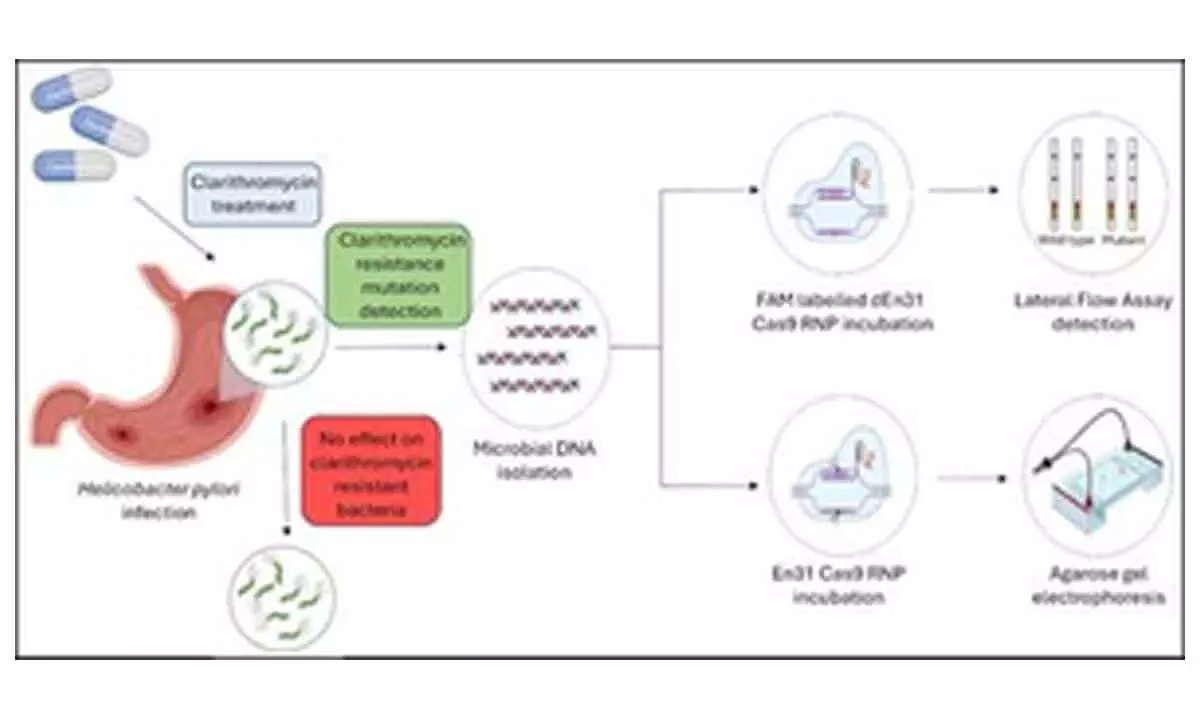CRISPR-based diagnostic test to detect ulcer, gastric cancer-causing bacteria
Share :

A team of Indian scientists, including from CSIR-Institute of Genomics and Integrative Biology (IGIB) and AIIMS has developed a new method using CRISPR-based diagnostic test FELUDA for detecting H. pylori bacteria, said the Ministry of Science and Technology on Friday.
New Delhi : A team of Indian scientists, including from CSIR-Institute of Genomics and Integrative Biology (IGIB) and AIIMS has developed a new method using CRISPR-based diagnostic test FELUDA for detecting H. pylori bacteria, said the Ministry of Science and Technology on Friday.
Infections with H. pylori are known to affect over 43 per cent of the world’s population. It can cause a wide range of gastrointestinal disorders, including peptic ulcers, gastritis, dyspepsia, and even gastric cancer.
In the study, the team found a way to develop FELUDA as a point-of-care diagnostic service at a minimal cost for the detection of H. pylori and its mutations in patients having indigestion. They included patients from rural areas of India, with minimal or no access to diagnostic laboratories. FELUDA is an acronym for FnCas9 Editor Linked Uniform Detection Assay.
Gastric biopsy samples from dyspeptic (indigestion) patients were tested both by in vitro cleavage studies and lateral flow-based test strip assays (FELUDA).
The results showed the potential of en31-FnCas9 to successfully detect the presence and identify the 23S rDNA mutation status of H. pylori in gastric biopsy samples from dyspeptic (indigestion) patients.
The paper, published in the Microchemical Journal, highlights the significance of sequencing-free molecular diagnosis in detecting H. pylori and its antibiotic-resistance mutations. The findings stress the need for tailored treatment plans to address global public health concerns associated with antibiotic resistance and gastric cancer risks.
The integration of en31-FnCas9-based detection with lateral flow assay (FELUDA) demonstrated rapid detection of H. pylori infection and its mutation status. This can boost its diagnostic potential in clinical settings.
“Therefore, integration of novel diagnostic strategies as cost-effective diagnostic tools to detect the presence of H. pylori in human samples, as well as the identification of the antibiotic susceptibility is crucial for its rapid eradication,” the team said.








